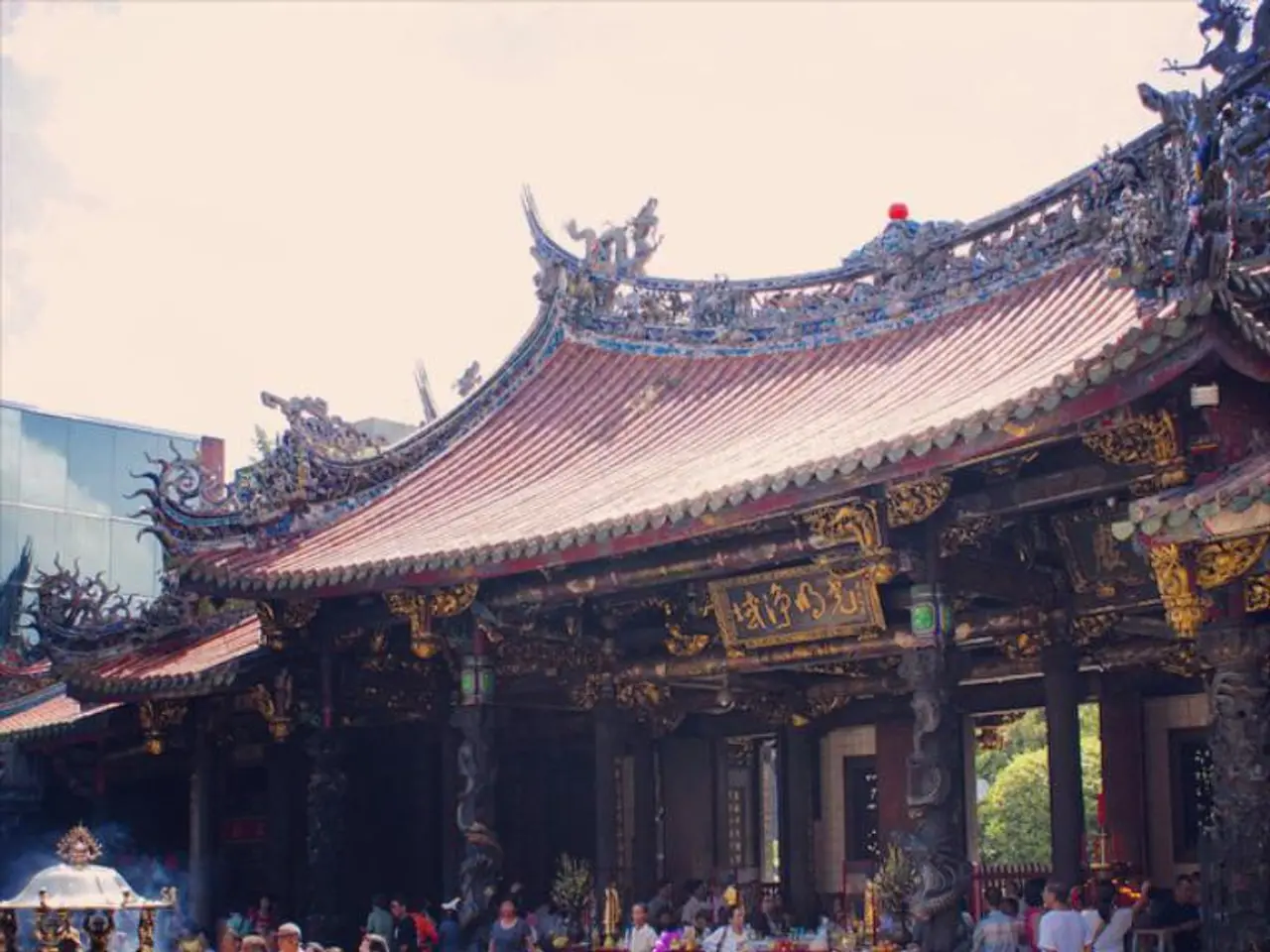Westward Tokyo Excursion: Vitality and Class in Shibuya to Meguro Areas
In the heart of Tokyo, the area surrounding Shibuya Station showcases a dynamic mix of modern architecture, rich history, and bustling urban life.
Key features include:
- Mixed-use High-Rises and Complexes: Large modern buildings dominate the area near Shibuya Station. For example, the Sakura Stage development, south of the station, features two connected towers of 30 and 39 floors that combine commercial offices, retail, residential units, and serviced apartments designed to accommodate up to 10,000 people. Another example is the Shibuya Toyu Building (Kewpie Head Office), a 13-floor office building with innovative architectural details.
- Flexible and Incremental Urban Form: Tokyo’s zoning around Shibuya encourages a flexible approach, allowing varied uses within the same categories—residential, commercial, or industrial. This flexibility means the urban fabric has grown incrementally through small individual decisions rather than strict citywide plans, resulting in a lively and layered environment.
- Iconic Architectural Landmarks: Shibuya features distinctive buildings such as Shibuya 109, a cylindrical structure known for its iconic youth-fashion retail role and significant cultural symbolism, located right next to the station’s famous scramble crossing. Nearby, structures inspired by architects like Tadao Ando illustrate the use of minimalist concrete, natural light, and spatial drama.
- Cultural and Historical Layers: The area includes preserved historical references amid modern construction, as seen in Sakuragaoka-chō’s hills, which feature sites like the former Naka-Shibuya Church, blending postwar cultural history with contemporary urbanity.
- Integration of Transit Infrastructure: Urban planning around Shibuya leverages the dense transit network, using space creatively beneath and alongside rail lines to accommodate commerce and pedestrian movement, maximizing land use efficiency in a busy metropolitan node.
Just a stone's throw away from Shibuya, Ebisu and Kami-Ōsaki are avidly sought by upper-class residents for their central location, access to upscale retail and fine dining, and refined atmosphere. Modern 2-bedroom apartments in new luxury towers in Ebisu range from ¥700,000 to ¥1.5 million a month. Yebisu Garden Place, once the site of the Dainippon Beer Brewery, now offers a stylish urban complex combining offices, shops, restaurants, a museum, and a scenic plaza.
Between Ebisu and Meguro, the outer side is a commercial district with affordable shops and restaurants, while the inner side is a zone of quiet affluence. Ebisu Station started in 1901 as a freight-only station for shipping beer and was incorporated into the Yamanote Line in 1909.
The area south of Shibuya is characterized by old, dilapidated buildings decorated with graffiti and stickers. The Naka-Shibuya Church, part of the United Church of Christ in Japan, is located in the area and was featured in the 1964 film "Black Sun". The original church building from 1917, where the film was shot, has been demolished and a new version was completed in 2020.
Interestingly, Kami-Ōsaki is home to wealthy Japanese families, corporate executives, and some patrician households, known as Tokyo's "whispering aristocracy." The Tokyo Toilet Project, a set of 17 public toilets designed by famous architects and designers, includes Ebisu as one of its locations, with four public restrooms very close to Ebisu Station. Tamura Nao designed one of these public restrooms.
Shibuya has 186 standalone public toilets, or about 12.3 per square kilometer, making it more accessible than London, which has approximately 14 per 100,000 residents. The overpass crossing National Route 246 offers a view of Shibuya's skyline, which has been hemmed in by new high-rises.
In summary, the area surrounding Shibuya Station is a vibrant, mixed-use urban environment, shaped by flexible planning, architectural innovation, and cultural layering, combining high-density towers, iconic commercial buildings, and pedestrian-friendly, adaptive urban spaces.
Read also:
- Trade Disputes Escalate: Trump Imposes Tariffs, India Retaliates; threatened boycott ranges from McDonald's, Coca-Cola to iPhones
- Disruptions looming in global chocolate production as Turkey's hazelnut crops face winter perils
- Finance Management Organization (FMO) secures €130 million syndicated loan for QNB Leasing in Turkey
- "Dismissed USAID Employees Allegedly Swindle Taxpayers - Prosecution Necessary!"




